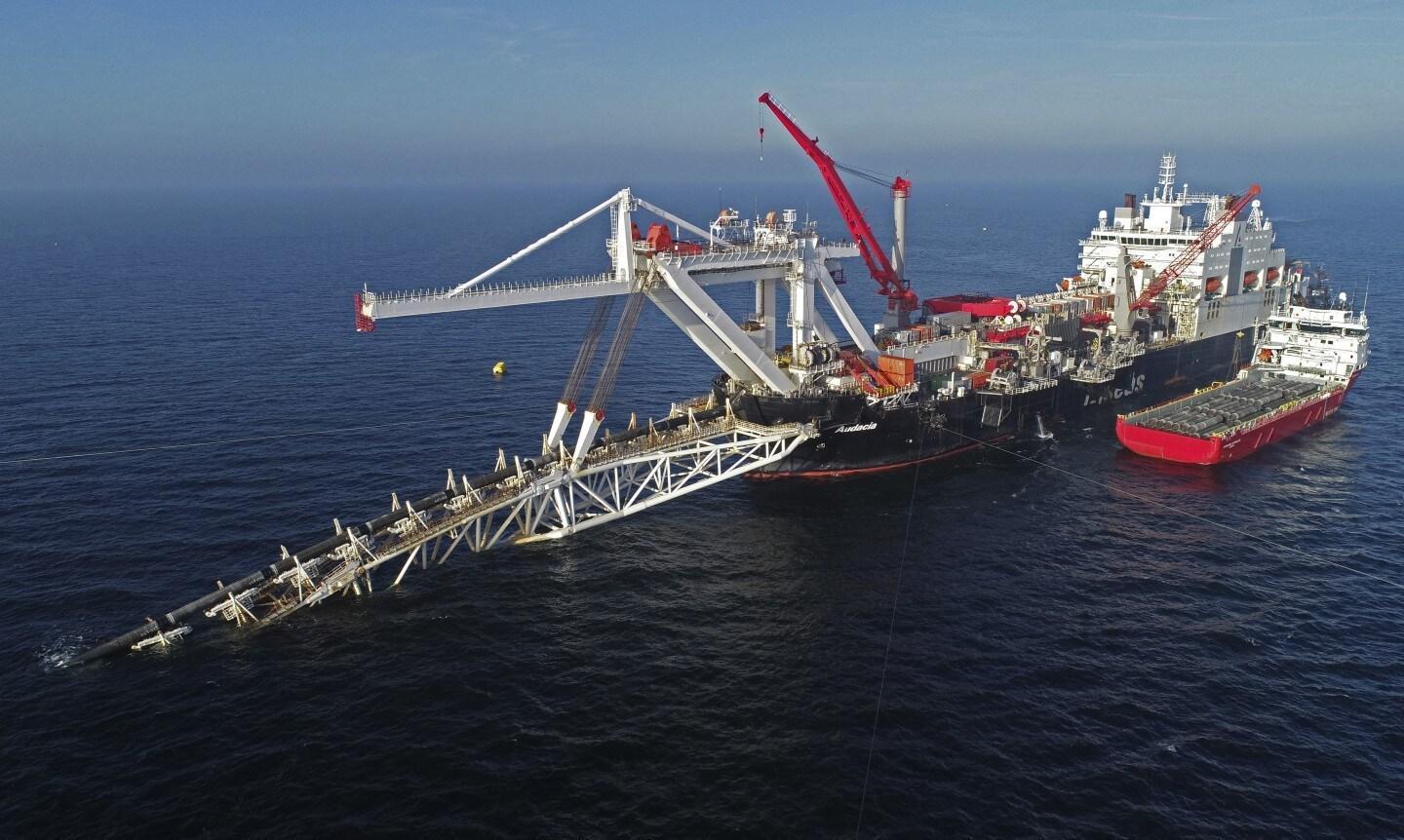
Germany accused the United States of interfering in its internal affairs on Dec. 21 for imposing sanctions on companies working on a major project to supply Western Europe with Russian gas.
Moscow and the European Union also issued statements criticizing the sanctions, a day after President Donald Trump signed off on asset freezes and visa restrictions on those involved in the Nord Stream 2 project.
Swiss contractor Allseas said after the sanctions were imposed that it had "suspended its Nord Stream 2 pipelay activities".
Although U.S. Congress overwhelmingly backed the sanctions, there was some criticism among lawmakers of a move that in effect punishes NATO allies such as Germany.
While an EU spokesman criticized "the imposition of sanctions against EU companies conducting legitimate business", the German government said Berlin rejected "these sorts of extra-territorial sanctions".
"They will hit German and European companies and constitute an interference in our internal affairs," said Chancellor Angela Merkel's spokeswoman Ulrike Demmer.
Russian Foreign Ministry spokeswoman Maria Zakharova slammed the United States, accusing it of seeking to prevent other countries from developing their economies.
"A state with $22 trillion in public debt is banning solvent countries from developing their economies," Zakharova wrote on her Facebook page.
"The American ideology does not like global competition. Soon they'll be asking us to stop breathing."
Russian gas giant Gazprom is financing roughly half of the project, with the other half paid for by five European companies.
Trump on Dec. 20 signed off on U.S. sanctions against companies building a Russian natural gas pipeline to Germany that Congress fears will give the Kremlin dangerous leverage over European allies.
The sanctions, which are opposed by the EU, were included in a sprawling defense spending bill Trump signed at a ceremony on Joint Base Andrews, an air force installation outside Washington, DC.
They target companies building the nearly $11 billion Nord Stream 2 pipeline under the Baltic Sea with the aim of doubling deliveries of Russian natural gas to Europe's leading economy, Germany.
U.S. lawmakers have warned the pipeline would enrich a hostile Russian government and vastly increase President Vladimir Putin's influence in Europe at a time of heightened tension across the continent.
Both houses of Congress overwhelmingly approved the sanctions, with the Senate voting on Dec. 17 to send the measure to Trump's desk.
Trump, who has been accused by Democratic opponents of being soft on Putin, had little choice but to give his approval.
The sanctions were inserted into a much wider $738 billion annual Pentagon funding bill and, given the level of congressional support, a veto would likely have been overturned.
The U.S. measures have angered Moscow and the European Union, which says it should be able to decide its own energy policies.
Germany's foreign minister, Heiko Maas, discussed the issue during a phone call on Dec. 20 with U.S. Secretary of State Mike Pompeo, State Department spokeswoman Morgan Ortagus said.
Pompeo expressed "strong opposition" to the project, Ortagus said in a statement.
The German-Russian Chamber of Commerce insisted last week that the pipeline was important for energy security and urged retaliatory sanctions against the United States if the bill passes.
The U.S. sanctions target pipe-laying vessels for Nord Stream 2 and TurkStream, a Russia-Turkey pipeline, and include asset freezes and revocations of U.S. visas for the contractors.
One major contractor that could be hit is Allseas, which has been hired by Russia's state-owned energy giant Gazprom to build the offshore section.
Following the act's signing, the Swiss-based company said in a statement it had "suspended its Nord Stream 2 pipelay activities."
The power of Gazprom, which is closely integrated with the Russian state, is at the center of concerns about the pipeline in the United States, and also in eastern and central European countries.
Senator Ted Cruz, a Republican ally of Trump, said that halting Nord Stream 2 should be a major security priority for the United States and Europe alike.
"It's far better for Europe to be relying on energy from the United States than to be fueling Putin and Russia and dependent on Russia and subject to economic blackmail," he told the Senate last week.
However, Senator Rand Paul, another Republican, voted against the bill, objecting to its bid to "sanction NATO allies and potentially American energy companies."